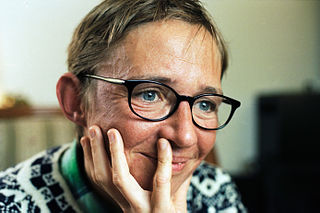A Quote by Hermann Hesse
Related Quotes
A life is such a strange object, at one moment translucent, at another utterly opaque, an object I make with my own hands, an object imposed on me, an object for which the world provides the raw material and then steals it from me again, pulverized by events, scattered, broken, scored yet retaining its unity; how heavy it is and how inconsistent: this contradiction breeds many misunderstandings.
You know, that's what I've regretted the most, that joy. Of course, later there were times when I felt happy, but happiness is to joy what an electric light bulb is to the sun. Happiness always has an object, you're happy because of something, it's a condition whose existence depends on external things. Joy, on the other hand, has no object. It seizes you for no apparent reason; it's like the sun- its burning is fueled by its own heart.
Happiness has to be installed in each person as a state of affairs completely cut off from the process that brought it about and, in particular, from the real situation. Man has to be affected with happiness. It is a tonality given to him. Contradiction: if one does take care to give him happiness, it is because he is a free creature--but in order to give it to him, one turns him into an object.






































